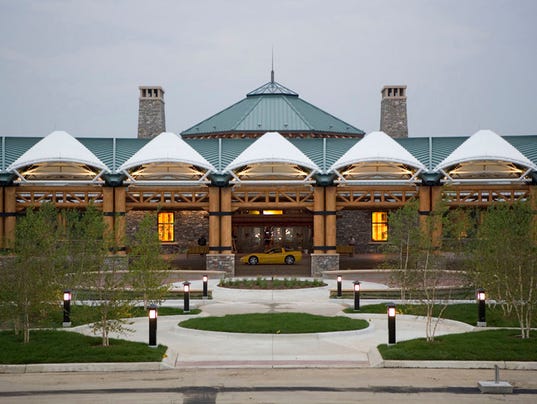MUNSTER, Ind. — A proposal by the Pokagon Band of Potawatomi Indians to build a casino in South Bend has existing casinos in northwest Indiana concerned about what it will mean for their business, which already is seeing a downturn.
"A new casino in South Bend would add capacity to an already saturated market," David Strow, the Las Vegas-based corporate communications director for Boyd Gaming Corp., the parent company of the Blue Chip Casino, told The Times of Munster (http://bit.ly/1BB9np3 ).
The federal Bureau of Indiana Affairs will hold a public hearing on April 14 in South Bend on a draft environmental impact statement that says a proposed $480 million tribal village and casino would have no significant effect aside from traffic.
"This is an important first step in a lengthy process that began over two years ago," Pokagon Band Chairman John P. Warren said in a written statement. "We are very pleased to have reached this significant milestone."
The tribe already operates three casinos in Michigan. The largest is in New Buffalo and includes a hotel and entertainment venue and it has satellite casinos in Dowagiac and Hartford.
The existing casinos are the Blue Chip Casino in Michigan City, the Horseshoe casino in Hammond, the Ameristar casino in East Chicago, Majestic Star casinos in Gary. The Blue Chip Casino is the closest to South Bend, about 40 miles to the west.
A study by Spectrum Gaming Group for the Casino Association of Indiana, of which Horseshoe and Ameristar are members, said the proposed casino would "significantly affect the investment climate and the competitive landscape."
The four casinos have seen gambling revenue decline about 14 percent during the last five fiscal years, dropping to $1.02 billion from $1.18 billion, according to figures from the Indiana Gaming Commission. Statewide, casino revenue is down about 17 percent, dropping to $2.30 billion from about $2.78 billion, over the same period.
Because Four Winds Casino would be on land-in-trust controlled by a Native American tribe, it would not be subject to the same tax and regulatory system as other casinos in Indiana.
"This is a game-changer even if it were competing on the same playing field," said Ed Feigenbaum, editor of the Indiana Gaming Insight newsletter.
According to the Indiana Gaming Commission, about 30 percent of gaming revenue from the four casinos in northwest Indiana went to pay the wagering and admissions taxes in fiscal 2014. Exactly how much money a South Bend casino would contribute to Indiana governments would be determined through a compact between Indiana and the tribe, which is required by federal law.
———
Information from: The Times, http://www.thetimesonline.com
Read or Share this story: http://indy.st/1CoTeH5
| < Prev | Next > |
|---|







 Copyright © 2025 ToCasino.net Online Casino. All Rights Reserved. Designed by
Copyright © 2025 ToCasino.net Online Casino. All Rights Reserved. Designed by